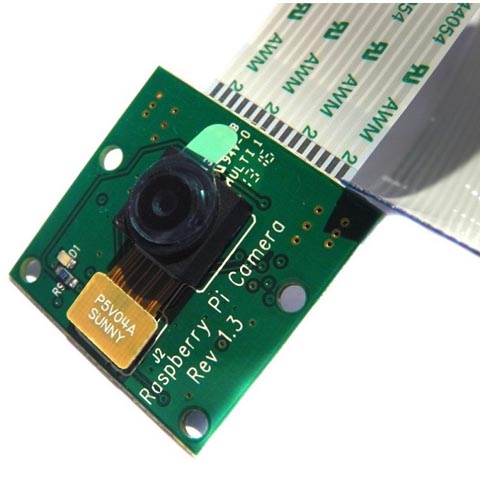
Alex Eames has done a great “Day 1” video of his newly-arrived Compute Module. If you’d like to see one in the flesh, or just want to see what all the fuss is about, head on over to RasPi.tv and watch the video.

Alex Eames has done a great “Day 1” video of his newly-arrived Compute Module. If you’d like to see one in the flesh, or just want to see what all the fuss is about, head on over to RasPi.tv and watch the video.


Aylesbury, UK, FUZE Technologies Ltd, creator of the FUZE workstation powered by the Raspberry Pi and paired with FUZE BASIC have announced that they are to sponsor the Babcock Code Camp in Guildford at the end of July.
The Babcock Code Camp is a computing course for primary, secondary and special schools. Running from the 29th to the 30th July 2014 and based around the changes to the National Curriculum in England: Computing Programmes of Studies. The FUZE workshops will provide teachers with enough skills, resources and knowledge to create an outstanding computing curriculum for their school.
This residential will enable attendees to network with likeminded professionals and collaborate to produce schemes of work and activities to inspire students and classes.
“We are really excited about sponsoring the Babcock Code Camp” Jon Silvera, Managing Director of FUZE Technologies Ltd. “We have put together some key workshops for all teachers attending which showcases how easy it is to use the FUZE as a teaching and learning tool.”
The FUZE brings to life all the key stages of the National Curriculum computing programmes of study in a fun, motivational and engaging package for the classroom, after school clubs, extra-curricular projects and home coders.
At Code Camp teachers will learn how to use FUZE BASIC and see how they can enhance their teaching of programming with the FUZE curriculum compliant lesson plans and the FUZE BASIC Project cards. The Project cards promote collaborative and child initiated learning and contain easily measurable success criteria.
The FUZE is extremely robust and secure and by operating at a very low DC voltage provides an exceptionally safe environment. Making it more than a match for the rigours of everyday school life, not to mention protecting the Raspberry Pi from electronic shorting, static and physical damage so extending its life and use within the classroom. As many schools have invested in the Raspberry Pi the FUZE is available either with or without the Pi, allowing schools to make the most of the investment they have already made.
The FUZE interactive electronic kit helps to develop programming skills and an understanding of practical applications of technology in the real world. The kit, contains a solder-less breadboard (used to create temporary prototypes and experiment with circuit design) and an array of jumper cables/wires, resistors, LED’s, micro switches and a buzzer.
For more information on the FUZE please visit www.fuze.co.uk
For more information on the Code Camp and to book your place, visit this page
To read a press release about the event, please click here
The MyPiFi board from Paul Brown is a small GPIO push-on board that gives you three LEDs and a button and is ideal for anyone who wants to a) learn to solder and b) learn to program. At just £6 (currently, rising to £8 soon), this board is small and funky! Read more and back it on Kickstarter here. Paul only needs a few more backers and it would be great to give him all the support he needs!

Porchester Junior School has written up their wildlife camera project. It’s a full account and tutorial on how to do it yourself, including installing, modifying and using ‘motion’ to capture video. Read their PDF here.


Team 28 from Imperial College London have released the code for their bare-metal implementation of classic game Star Fox. You can get the code here and view a video of the game below:

Eric Gradman has developed a pre-built environment for cross-compiling for the Raspberry Pi that also implements NFS booting. Here’s the description from his site:
It uses Vagrant and Ansible to spin up a Virtualbox virtual machine that runs on Mac, Linux, or Windows(?). In no time at all, you’ll have an environment that:
Cross-compiles for the Raspberry Pi armv6l architecture.
NFS boots one or more Raspberry Pis. The root partition is loop-mounted from a .img file, so you can later dd it to an SD card for standalone operation.
Is ready to cross-compile OpenFrameworks applications and run them on a cluster of Raspberry Pis.You won’t have to do any of the things on the Raspberry Pi Cross-Compiling Guide page. I have contributed to that guide to make the process more smooth, but it’s still a mess.Here, Vagrant automates the process of setting up a Virtualbox virtual machine and Ansible automates the process of setting up the cross-compiler, the NFS server, and OpenFrameworks.
I’ve not tried any of it out, but it does sound interesting.